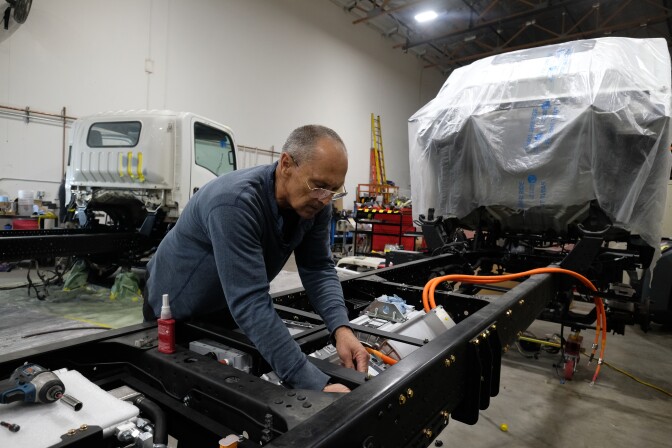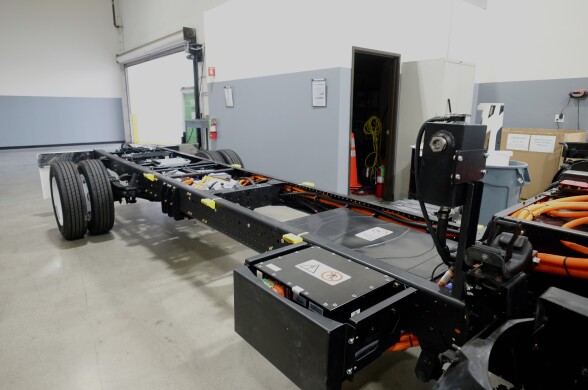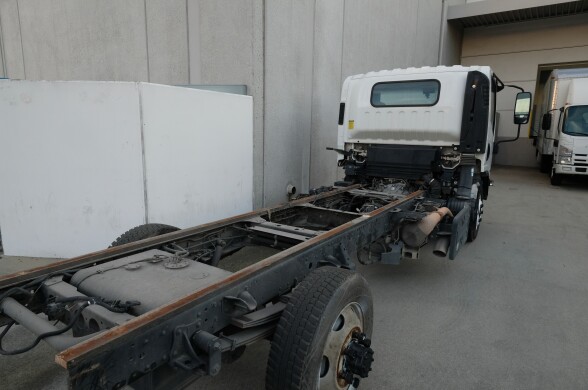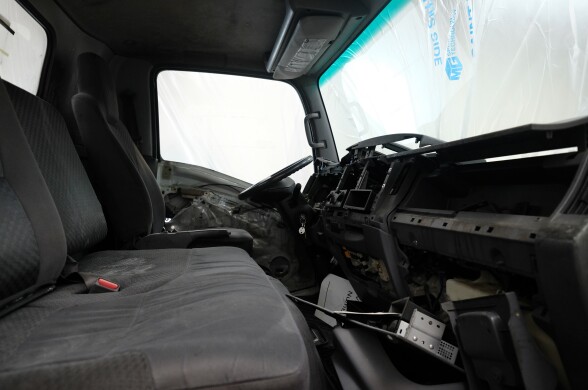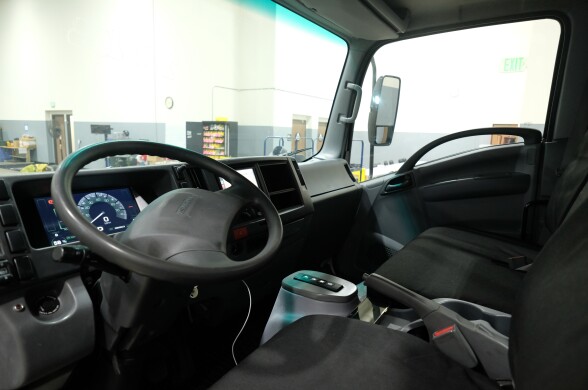California is pushing the trucking industry to electrify — that’s because medium and heavy-duty trucks make up only 6% of the vehicles on the road, but they cough up about 35% of the pollutants that give Southern California its notorious smog as well as a quarter of vehicle pollution that gets into the atmosphere and heats up the planet, according to the California Air Resources Board.
The effort so far has prioritized swapping out old trucks for shiny new electric ones. But that doesn’t always have to be the case.
Evolectric, a company headquartered in Rancho Dominguez in south L.A. County, retrofits diesel medium-duty trucks to be all-electric.
On a recent trip to their warehouse, four Isuzu trucks between eight and 10 years old, in various stages of repair, were in the process of conversion. These trucks were originally headed for the scrap yard, or abroad, where they’d continue to pollute for years more.
“Instead, now they get at least 10 more years of operation as a zero emissions vehicle here in California,” said Jakson Alvarez, the cofounder of Evolectric.
Converting existing trucks to electric not only cuts down on pollution from manufacturing, Alvarez said, but also costs about half as much as buying a new truck.
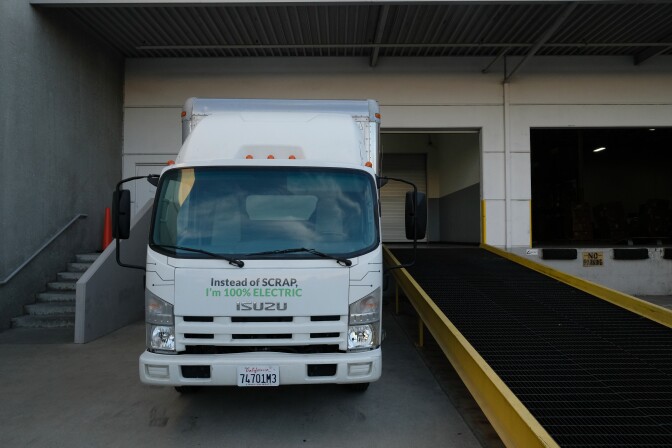
“This solution is especially ideal for those smaller fleets,” Alvarez said. “They're really the ones being left behind the most because they're surviving. They don't have time to figure out — how am I going to transition to electric?”
Companies with fewer than 50 trucks are largely exempt from California’s new clean truck rules, but Alvarez said small businesses often spend tens of thousands of dollars maintaining their diesel trucks as long as possible.
Converting to electric when the truck may need to be scrapped or replaced can help them save money on maintenance and fuel in the long term — as much as 70% on maintenance and more than 60% on fuel, Alvarez said.
Small fleets are large source of pollution
These smaller fleets make up about half of all the trucks on the road, so they’re a major contributor to dangerous air pollution.
“Most of the pollution is being done by the trucks that are inside cities because they're idling a lot, they’re back and forth,” Alvarez said. “So we can take care of a big portion of the pollution just by taking care of the trucks that are operating in cities.”
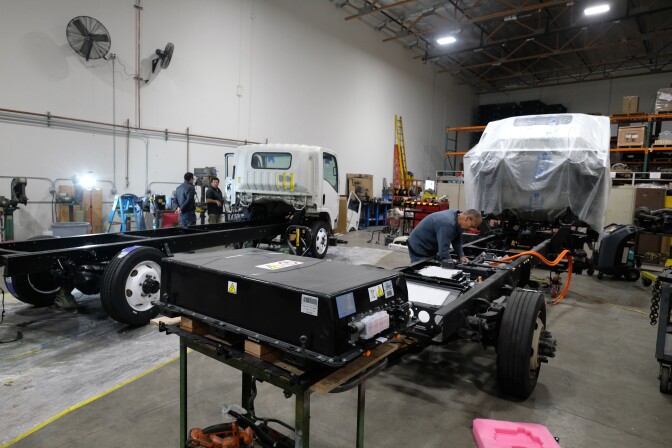
These smaller fleets are usually driving less than 120 miles in a day, which is the upper range of the batteries they install, and they generally have time to charge overnight so they only need a simple home charger, Alvarez said.
Evolectric’s clients now include a few small recycling businesses and a construction contractor, as well as major industry players such as Anheuser-Busch and Coca Cola.
Read our past coverage on electric trucking
- Mandates On Zero Emission Vehicles Are Changing California's Job Market. What You Should Know
- More electric trucks, more charging stations, but challenges remain
- Electric Trucks Are Making Their Way In California. We Took A Ride To See What It’s Like
- California's groundbreaking clean fuel laws mean big changes for polluting trucks and trains. Why it matters
A process that can scale
Conversions take about a week, but Evolectric’s goal is to get that down to two days. It’s not quite as simple as swapping out an engine for a battery, so Alvarez said they're focusing on perfecting the process, and their conversion kits right now. Then, they can train existing technicians at service centers across the country to become certified in retrofitting. So far the five-year-old company has converted 15 trucks, and they plan to scale up dramatically by 2026.
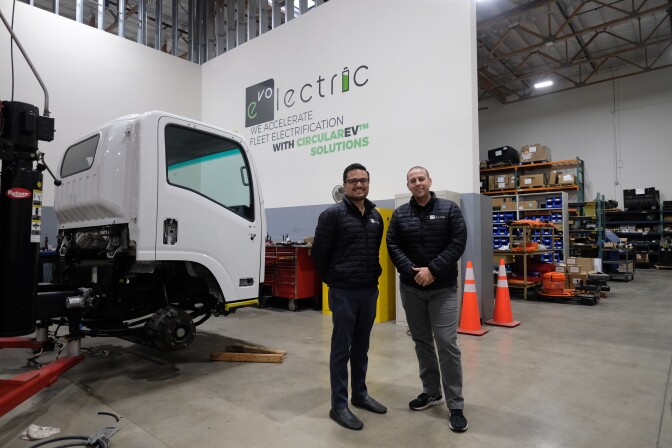
Alvarez has global ambitions too — serving countries in the Global South that are usually last to access cleaner technologies.
For him, it’s not just about business, it’s personal. He grew up in Bogotá, Colombia, before his family came to the U.S. when he was 12. He remembers the pollution from trucks and buses, often exported from countries like the U.S.
“It's still very vivid to me today, just the smog,” Alvarez said. “I could even taste it in some cases.”
One challenge to scaling up faster has been that conversions have largely been left out when it comes to state and federal incentives to electrify the trucking industry.
For example, there is not funding for conversions in the historic climate funding included in the federal Inflation Reduction Act. California, however, recently upped its reimbursement for conversions from 50% to 75% of the voucher for new trucks. Keep in mind that new trucks can get up to 90% of the cost covered, excluding sales tax. That means the medium-duty Isuzu trucks in Evolectric's warehouse would get a $45,000 voucher instead of $30,000, whereas a new electric truck of the same class would get $60,000.
Alvarez said that change is a big help for making conversions more competitive.
“That means for some of our customers, they might get 90% of the total conversion cost covered by these incentives,” he said.
A needed workforce
Another challenge to scaling up faster? Training a workforce skilled in diesel and electric technology.
Technician Marlon Guillén tightened bolts for the new inverter he was installing in one of the Isuzus. The Wilmington resident recently graduated from LA Trade Tech College, where he studied diesel engine tech.
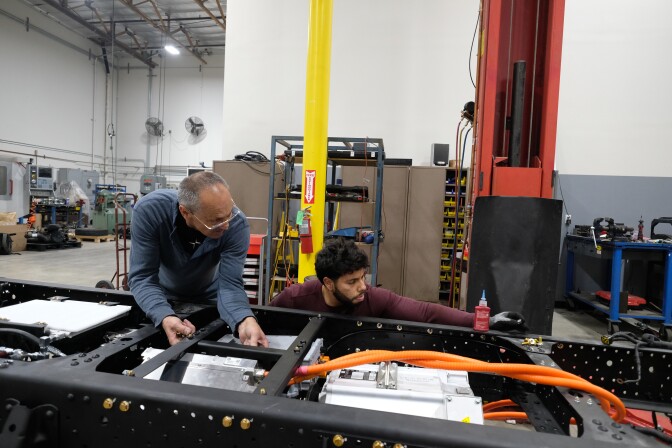
“So far where we're at, the trade schools don't really teach electric stuff,” Guillén said. “They do teach basic low voltage diagnostics, but when it comes to higher voltage stuff, they don't really teach it.”
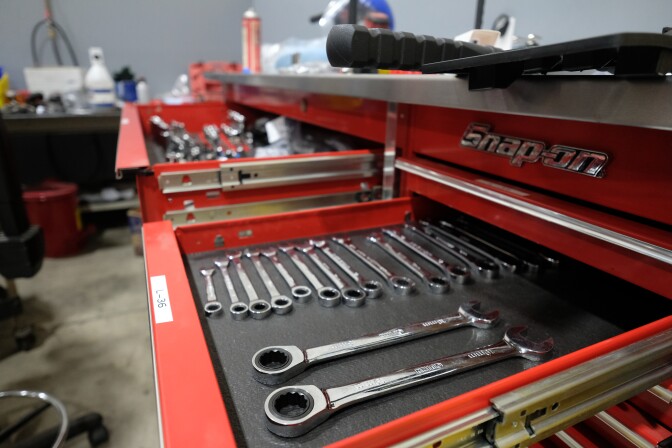
That’s why Evolectric is partnering with local schools, including LA Trade Tech and Cal State Long Beach to help train the next generation of technicians, said Bill Beverley, cofounder of Evolectric with Alvarez, and a Cal State Long Beach alum himself.
“The electric transition is not going to take away blue collar jobs, in our opinion,” said Beverley. “The familiarity that an existing technician has with existing vehicles translates rapidly into this new technology.”
Beverley said more than 50 students have already gone through the program at Cal State Long Beach, which doesn’t require any prior experience in vehicles.
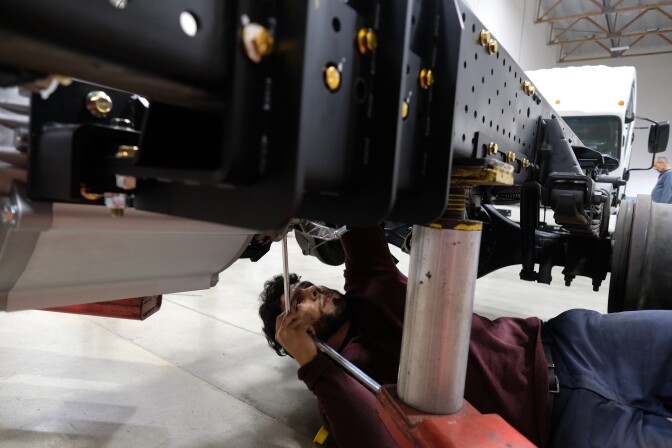
The satisfaction of the build
For Guillén, whether it’s diesel or electric, it’s a passion.
“When I was younger, I was always just messing around with mechanical stuff,” he said.
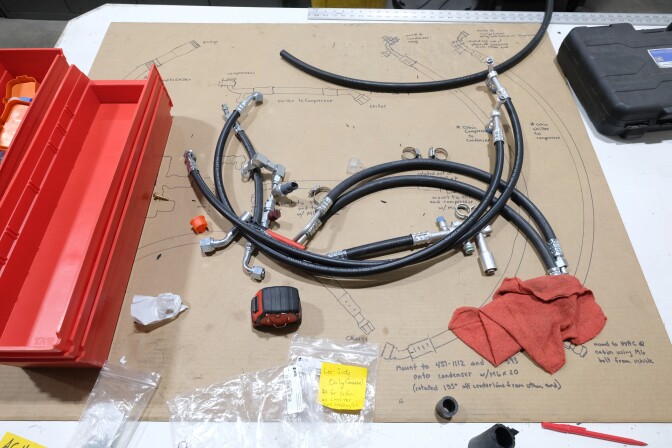
He started with bikes, then skateboards. When he got older, his dad taught him how to change the oil in his car to save money. But Guillén was destined for bigger vehicles.
“Automotive is fine, nothing wrong with it, but I just like the bigger stuff,” Guillén said. “It's fun. It's more heavy lifting and stuff.”
He wanted to work on diesel big rig trucks. But then he took a course on electric vehicles at LA Trade Tech.
“That's when I realized, you know what, this is something I kind of want to do,” Guillén said.
He said it’s not too different from working on diesel trucks. There are a lot more wires, and there’s extra expertise needed to work with high voltage parts.
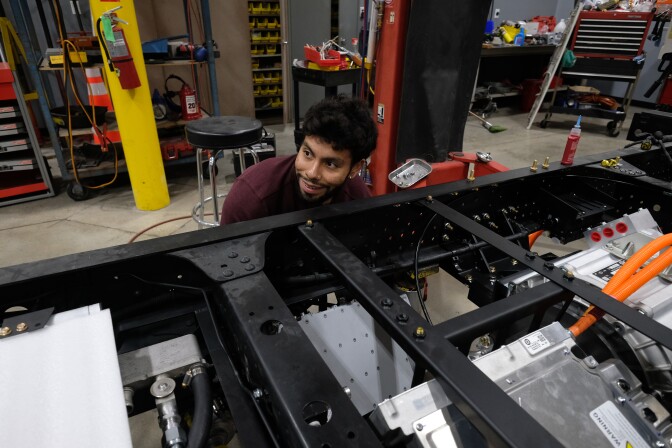
But the satisfaction of building something — that’s the same.
“I get to see when we strip a truck down and we build it back up,” Guillén said. “It's just that satisfaction and feeling that you get once you complete it, once you finally have that final build and it's running…it's a good moment.”




